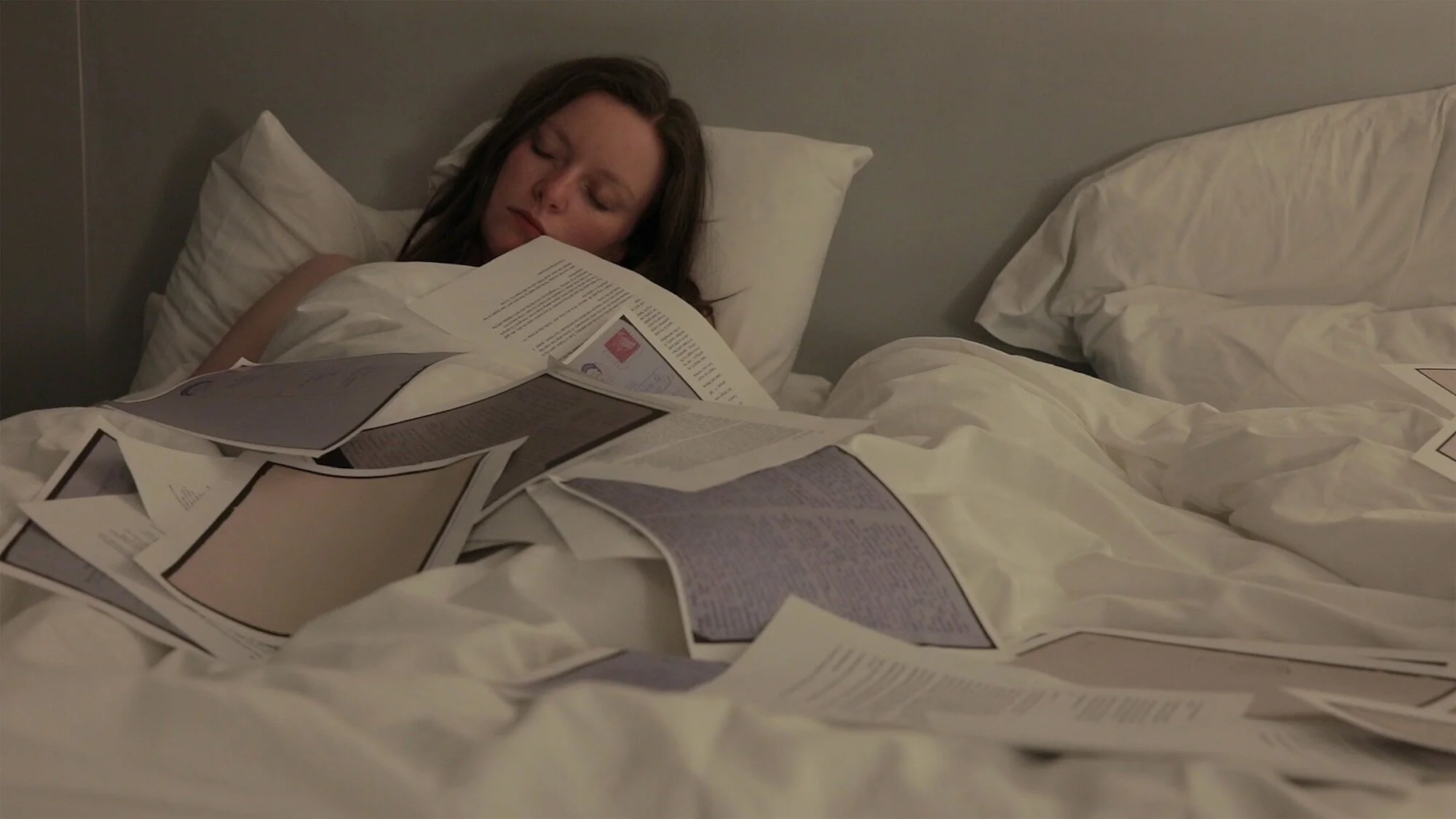MS Slavic 7
A short but rich film for those who like challenging and thought-provoking movies.
Deragh Campbell
This strikingly individual film introduced me to the work of Toronto-based Sofia Bohdanowicz and her regular collaborator the actress Deragh Campbell who is here credited as co-creator including a shared directorial credit. Apparently this is not the first work of theirs to draw on real people and events that form part of Bohdanowicz's family history. But instead of handling it in documentary form these films have adopted a fictional format whereby a character named Audrey Bernac played by Campbell stands in for Bohdanowicz herself. Thus it is that MS Slavic 7 (the title is a reference code for letters housed in the Houghton Library in Harvard) draws on actual letters held there and dating from the 1950s and 1960s which were written to the noted Polish poet Józef Wittlin by a close admirer, herself a poet, named Sofia Bohdanowiczova. However, in the film it is the fictional Audrey who is presented as being Zofia's descendant and we find her as literary executor of her great-grandmother's estate travelling from Toronto to examine the letters.
Blending fact and fiction in this way is unusual but, intriguing though it may be, it is not important to the resultant film which, whatever its origins, asks to be judged as an off-beat work of cinema close to the avant-garde and certainly of an intellectual bent. As that suggests, not everyone will respond positively to it, but MS Slavic 7 has the stamp of filmmakers who know exactly what they are doing. Every detail from the soundtrack (the telling use of organ music by Bach contrasted with scenes without background music supplemented by the performance of a Polish song in a party sequence) to the look of the piece shot on digital video by Bohdanowicz herself feels precisely judged and apt. The early scene of Audrey unpacking on reaching her hotel room evidences her neatness and orderliness yet also expresses the impersonal character of such places.
As the film proceeds we encounter too Audrey's aunt (Elizabeth Rucker) who challenges what she is doing, a translator (Mariusz Sibiga) who is needed because Audrey can't read Polish and a pedantic librarian (Aaron Danby) whose appearances add humour to the film. But at heart this is a work that asks us to ponder the human condition by asking how much we can understand others from a distance even if we can examine their letters: despite her Polish ancestry, can Audrey growing up in Toronto in comparatively recent times ever enter the mindset of a woman whose youth was spent in Poland and who as a Jew had to flee Europe? However deep the feeling in them, can words in letters reveal what lies beneath and can anyone know from Zofia's passionate letters the exact nature of her deep bond with Józef (it was not he whom she married but theirs was a meeting of souls). Three monologues by Audrey (eventually found to be not quite what they seem) are neatly structured into the film so that she can offer her thoughts. These emphasise the intellectual character of this work which is an open piece without neat resolutions but one capable of raising haunting questions. At greater length it might all be less effective but at 64 minutes it fascinates aided by the fact that one is always aware that this is a genuine art work of a truly distinctive kind.
MANSEL STIMPSON
Featuring Deragh Campbell, Aaron Danby, Elizabeth Rucker, Mariusz Sibiga.
Dir Sofia Bohdanowicz and Deragh Campbell, Pro Sofia Bohdanowicz, Deragh Campbell and Calvin Thomas, Screenplay Sofia Bohdanowicz and Deragh Campbell, Ph Sofia Bohdanowicz, Ed Sofia Bohdanowicz and Deragh Campbell.
Lisa Pictures-Mubi.
64 mins. Canada. 2019. Rel: 4 June 2020. Available on MUBI. No Cert.


